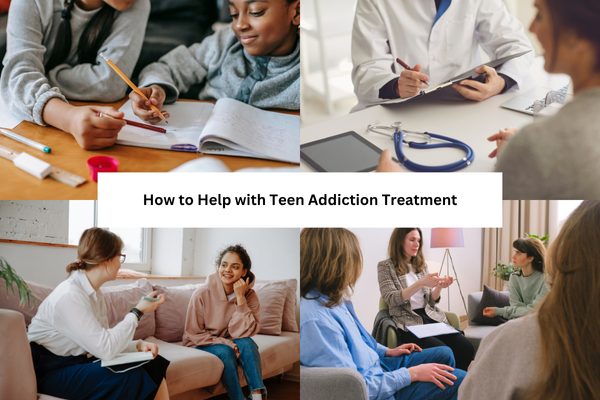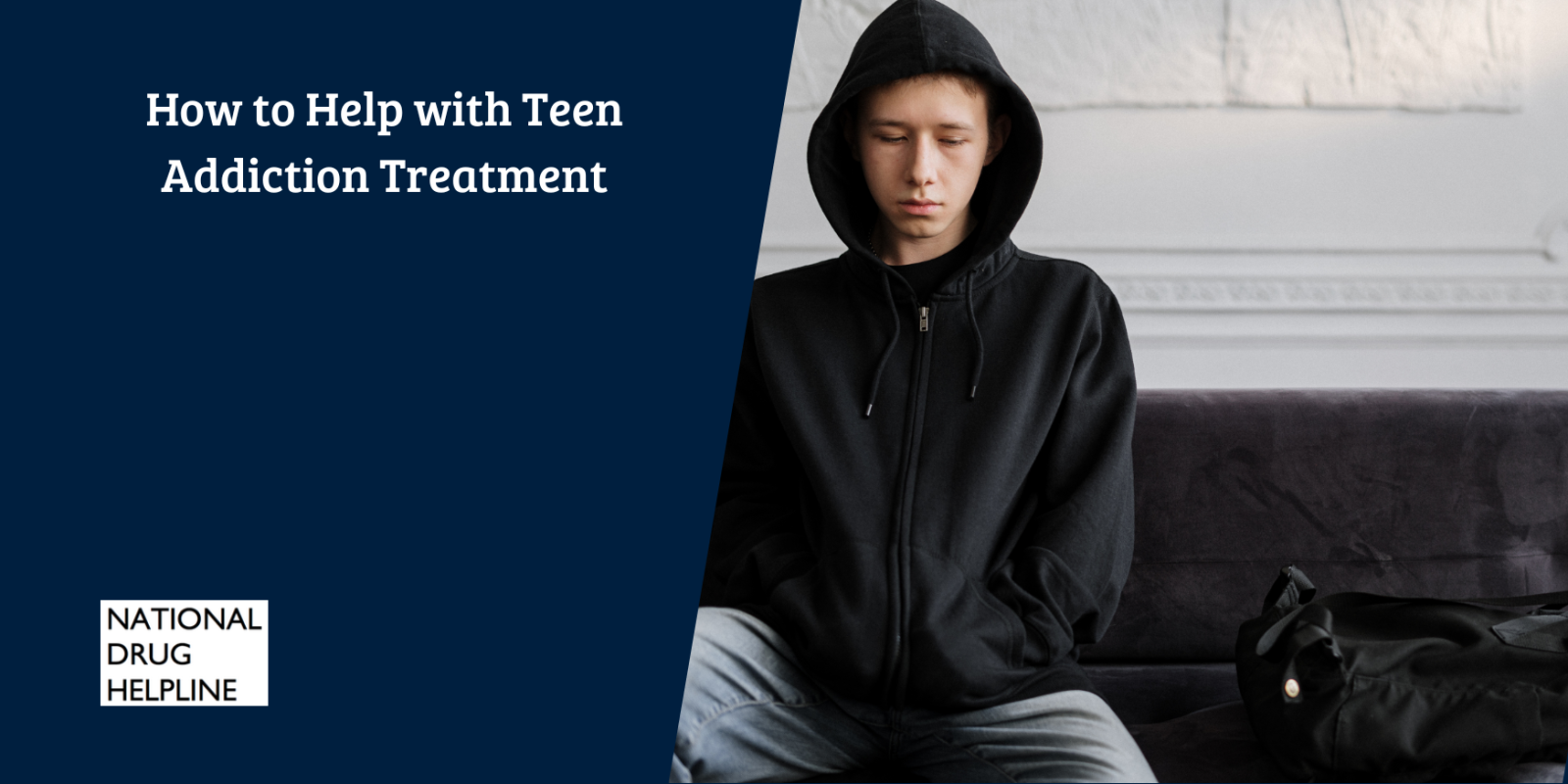It can be extremely heartbreaking and overwhelming to watch your teen struggle with addiction. It is quite understandable that as a parent, you want to do everything you can to help. But more often than not, parents do not always know what the right steps are. Furthermore, teen addiction is more complex and sensitive, often making recovery more challenging than in adults. However, with the right support and guidance from you, you can make a powerful difference.
This guide aims to offer you reassurance and actionable tips on how to support your teen in their addiction treatment, know all the available options like teen drug rehab, and navigate the journey towards recovery together.
Understanding Teen Addiction
During the teenage years, addiction often looks different than in adults. The neurological system of teenagers is in a phase of development, and their brains are still maturing[1]. This makes teenagers more vulnerable to risky behavior, peer pressure, and emotional struggles. They may use substance abuse as a coping mechanism.
Some of the common signs of teen addiction[2] include:
- While teenagers are known for their moodiness, they may be more prone to develop sudden mood swings or changes in their personality
- Substance abuse can impact academic performance negatively as teenagers are unable to devote their time to schoolwork
- Teenagers tend to be usually distant with their family and seek company with their peers more often. But when teenagers are dealing with addiction, many withdraw from all forms of social contact with both their friends and family.
- They may display secretive behavior or may start lying on a regular basis about their daily activities.
- As a large chunk of their time is spent focusing on how to sustain their substance use, they may neglect their hygiene or appearance.
It is important to be able to recognize these signs early on so that you can intervene before the problem escalates.
The Importance of Professional Teen Addiction Treatment
In comparison to adult addiction programs, teens suffering from addiction require specific psychological, emotional, and developmental support[2]. A comprehensive teen drug rehab program is essential and includes:
- Medical detox
- Individual and group therapy
- Family therapy and parental involvement
- Educational support
- Life skills and relapse prevention training
Teen addiction programs promote an environment that is structured for teenagers to safely explore the root causes of their addiction, develop healthier coping strategies, and start healing.
How Parents Can Support Their Teen in Addiction Treatment
A teenager’s recovery through addiction can be made significantly easier with parental support. Some ways that parents can help their teenagers deal with substance abuse are:
Educate Yourself About Addiction
It is essential to understand that addiction is not a moral falling, but it is an actual disease. This knowledge and mindset allows you to approach your teenager with patience and empathy. Use trusted sources to learn and better understand what your teen is going through.

Be Present and Involved
It is not just the afflicted who can benefit from therapy sessions. By attending therapy sessions as a family[3] and actively participating in treatment plans, you can show your teen that you are in this with them together. This helps them feel supported rather than judged.
Set Healthy Boundaries
Supporting your teen does not mean to enable their addiction. You need to act as both a parent and a friend they feel safe to confide in. It is equally important to establish clear rules and consequences, and make sure they are enforced. Establishing boundaries creates a sense of safety and structure for a developing teen.
Practice Open and Honest Communication
Teenagers are prone to secrecy and lying about minor things such as their whereabouts. They do so because they fear their actions will be frowned upon or be punishable. You need to make your teen feel safe to talk to you without fear of punishment or shame. Trying to engage or encourage honest conversations about their feelings, struggles, and progress can also be extremely helpful.
Take Care of Yourself
You can only help your child as long as you yourself are physically and mentally sound. It can be quite difficult to cope with the burden of a teenage addiction. By seeking support groups or therapy for yourself, you can find the strength and ability to support your child.
Exploring Teen Drug Rehab Options
While selecting an appropriate rehab program for your teen, you need to make sure they are centers equipped with:
- Experience in adolescent treatment
- Licensed and credentialed staff
- A comprehensive, individualized treatment approach
- A focus on family involvement
You can seek advice from the National Drug Helpline by calling them on (844) 289-0879.
The Road Ahead: Hope and Healing
Recovering from addiction is not an easy journey, especially for teens who are having an already difficult time navigating through pubertal changes. Celebrate every small progress, and remind yourself as well as your teen that recovery is a lifelong journey.
Managing teen addiction can be daunting, but learning to love, support, and a willingness to change can make all the difference in the world. You can give your teen the best possible change at a healthy future by staying informed, involved, and compassionate[4].
Last updated: January 9, 2026
References
| ↑1 | Thorne, Craig R., and Richard R. DeBlassie. “Adolescent substance abuse.” Adolescence 20.78 (1985): 335 |
|---|---|
| ↑2 | Hogan, Marjorie J. “Diagnosis and treatment of teen drug use.” Medical Clinics of North America 84.4 (2000): 927-966. |
| ↑3 | Mafa, Prudence, and Jabulani Makhubele. “Raising a young addict: Parental narratives on living with a teenager with substance abuse problems.” Gender and Behaviour 17.4 (2019): 14116-14124. |
| ↑4 | Nath, A., Choudhari, S. G., Dakhode, S. U., Rannaware, A., Gaidhane, A. M., Dakhode, S., & Gaidhane, A. (2022). Substance abuse amongst adolescents: an issue of public health significance. Cureus, 14(11). |

